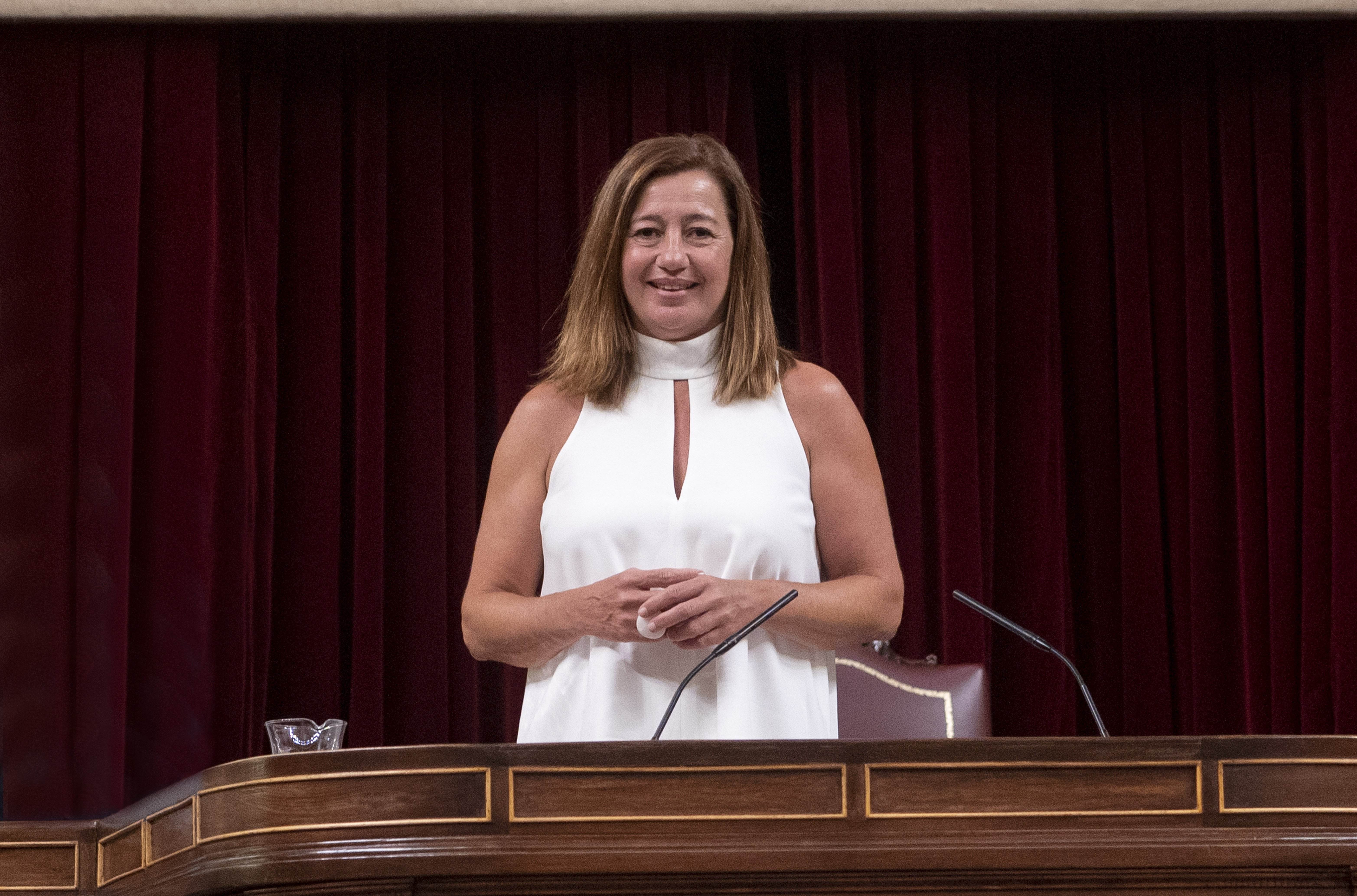The new speaker of Spain's Congress of Deputies, Francina Armengol, has asked for a little patience while the necessary technical formulas are found to enable the use of Catalan in the lower house, the step agreed with Together for Catalonia (Junts) and the Catalan Republican Left (ERC). Although she made the commitment to this in her opening speech of the fifteenth legislature - she stated that Catalan, as well as Basque and Galician, could be used "from this constitutive session" - Armengol has noted that her goal is to introduce it "as soon as possible" and from the starting point of "the capacity for consensus and dialogue" with the parliamentary parties. "I will tackle this, but I need the space to meet with the parliamentary groups, seek agreements and start working so that the use [of the three co-official languages] becomes a reality in the Congress of Deputies".
In media interviews with Cadena SER and Televisión Española, the former Balearic president acknowledged that deploying Catalan, Basque and Galician in the lower house "has its complexities". "We have to see the possibilities for it, the reality we have and we have to talk with the chamber's technical services", she said when asked about the technical requirements of the decision. However, Armengol reiterated that using these languages in Congress "is a fact of democratic normalcy". "The Congress must represent the real Spain and one of the great strengths of our country is its linguistic diversity and richness", she said.
Armengol minimizes the prospect of a repeat election
The new presiding officer of the third most-senior institution of the Spanish state downplayed any possibility of an electoral rerun after her election with the support of 178 MPs. In fact, she considers that the plurinational bloc that made possible the formation of the Congress's governing Bureau "marks the route" for a hypothetical investiture. However, she did not want to dwell on possible timings or rapidity of calling a hypothetical plenary session to elect a new prime minister.
In this regard, Armengol appealed to the institutional routines and recalled that now it is up to the king, Felipe VI, to summon the parliamentary groups to see which candidate has the most possibility of winning an investiture vote: "The king has the power to hold the meetings and see which candidate could obtain a majority. I can't set the timings. The negotiations will then have to be worked out among the different political forces", affirmed Armengol in a fully neutral and institutional speech. Nor did she want to answer about the possibility of processing the amnesty law and the legal status it could have: "I can guarantee that it will have to comply with the law, the rules and the regulation of the chamber. I am delighted with the body of [parliamentary] lawyers".
First day as speaker
This Friday, Armengol will be spending her first full day as speaker of the Congress of Deputies. In terms of her institutional agenda, this morning she is to inform king Felipe VI that the Cortes have been constituted and at midday will gather the new congressional Bureau, which she heads as speaker, for the first time. As she explains, "the machinery must be set in motion and the institution must move at a fast pace".

